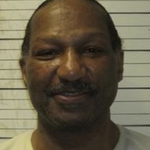DPI Report: Behind the Curtain
Secrecy and the Death Penalty in the United States
Overview
All death penalty states, the military, and the federal government authorize lethal injection as a method of execution. Jurisdictions use a variety of execution protocols using one or more drugs. Most three-drug protocols use an anesthetic or sedative, followed by a drug to paralyze the prisoner, and finally a drug to stop the heart. One and two-drug protocols typically use an overdose of an anesthetic or sedative, such as pentobarbital, to cause death.
Although the constitutionality of lethal injection has been upheld by the United States Supreme Court, many of the specific applications are being legally challenged. Because it is increasingly difficult to obtain legally the drugs commonly used in executions, some states have experimented with new drugs and different drug combinations to carry out executions, resulting in prolonged executions in which prisoners exhibited symptoms of pain and distress. The difficulty obtaining drugs for lethal injection has also driven up the costs.
Even though the issues surrounding lethal injection are far from settled, some states have attempted to cut off debate by concealing their execution practices under veils of secrecy. Laws passed over the past decade explicitly prevent the public from learning the provenance of lethal drugs, making it impossible to assess their reliability and efficacy.
DPI has compiled summaries of available information regarding the methods of execution currently authorized and the drugs used in executions over the past ten years. DPI’s report, Behind the Curtain covers the execution secrecy laws that have been imposed in many states. Statements from various pharmaceutical companies barring the use of their drugs in executions are also provided.
News & Developments
News
Oct 08, 2025
Upcoming Executions Illustrate Persistent Themes and Concerns Around the Death Penalty
Beginning October 10th, and then over the next eight days, six people are scheduled to be executed by lethal injection in six different states. Already this year, there have been 34 executions in nine states. While the concentration of so many executions in such a short period will certainly attract attention, the number is not the headline. These cases highlight important issues that are true whenever and wherever there are executions. First, even at this late…
Read MoreNews
Sep 17, 2025
Autopsy Points to Reason Behind Byron Black’s Painful Execution in Tennessee
Byron Black was executed in Tennessee by lethal injection on August 5, 2025. During his execution, Mr. Black unexpectedly and repeatedly groaned over the course of several minutes and audibly told his spiritual advisor that he was in pain. An autopsy released September 10, 2025, provides some explanation. It found evidence of“pulmonary congestion and edema”– defined as an abnormal buildup of fluid in the lungs which can produce sensations of“doom,…
Read MoreNews
Jun 16, 2025
Governor Says Indiana Will Not Purchase More Lethal Injection Drugs, Invites Debate over Death Penalty
According to Governor Mike Braun (pictured), Indiana has depleted the supply of pentobarbital it uses in its lethal injection executions. Given that the last of the doses purchased in December 2024 expired and went unused, Gov. Braun does not intend to renew the state’s supply. According to earlier reporting by the Indiana Capital Chronicle, the Indiana Department of Correction (IDC) spent $900,000 on pentobarbital in late 2024 in preparation for the execution of…
Read MoreNews
May 27, 2025
Tennessee Governor Allows State’s First Execution in Five Years to Proceed Despite Concerns Over Lethal Injection Drug
On May 22, 2025, Tennessee executed Oscar Smith by lethal injection, marking the state’s first execution in five years despite a pending lawsuit challenging the state’s new lethal injection protocol that relies on one drug — pentobarbital. Other death row prisoners and attorneys for Mr. Smith had urged Governor Bill Lee to grant a reprieve, citing an upcoming January 2026 trial that will determine the constitutionality of the new execution protocol. They…
Read MoreNews
May 22, 2025
“Violent” Movements During Indiana Execution Raise Unanswered Questions
Benjamin Ritchie’s execution in Indiana on May 20, 2025, has raised new concerns about the use of pentobarbital after defense counsel reported their client displayed an unusual physical reaction after being injected with the drug. But because Indiana officials bar media witnesses from observing executions, the public has no independent witness reports on what transpired. Steve Schutte, an attorney for Mr. Ritchie, told the Indiana Capital Chronicle that Mr. Ritchie…
Read More
